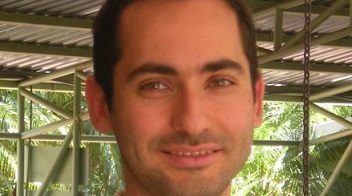As the director of the Illinois Autism Center, Vlad Kogen has overseen a shift in how support for children with autism is delivered. His understanding of autism services and a fresh, humanistic approach to ABA therapy have earned the clinic a strong reputation in the local community.
What inspired you to take on this role?
It was really a mix of personal and professional stuff that got me here. I had these friends growing up who dealt with learning differences, including autism, and seeing them struggle to get the support they needed, it just stuck with me. I remember thinking, ‘There’s gotta be a better way.’ So, when the opportunity came up to build this clinic, I jumped at it. I wanted to create a place where therapy involved building real relationships and treating kids with the respect they deserve.
What makes the Illinois Autism Clinic different from others?
For starters, we really try to make this place feel like an extension of home. We don’t want a cold, clinical vibe. We use evidence-based practices like ABA, but we’re not rigid about it. It’s all about finding that balance. We put a huge emphasis on respecting our clients’ autonomy and dignity. We work super closely with parents because, let’s face it, they’re the real experts on their kids.
How did you build the reputation the clinic has today?
Honestly, it’s all about consistency. We focus on building trust with families and the community by staying true to what we believe in. Our team is just… they’re incredible. Always learning, going to workshops, and staying on top of research. When families are happy, they talk. Word of mouth has been huge for us.
What’s one of your most common challenges, and how do you handle it?
I’d say one of the biggest challenges is trying to balance structure with flexibility. Some families come in expecting this super strict, results-driven approach, and then others are all about the relationship-focused model. We’ve found that the key is to meet each family where they are – we take the time to educate them about why both structure and flexibility are important. It’s not always easy, but it’s worth it.
How does ABA support your therapeutic approach?
We use ABA as a foundation, but we definitely put our own spin on it. We’ve moved away from some of the more traditional, rote methods like Discrete Trial Training. Instead, we’re all about Natural Environment Teaching and techniques that get kids wanting to participate, not just responding to commands like little robots. Over the years, we’ve also included things like trauma-informed care, cultural competence, and neurodiversity.
Are parents informed of the strategies used and their children’s progress?
Absolutely! We’re all about keeping parents in the loop. We do training sessions – sometimes one-on-one, sometimes in small groups – to teach families how to support their kid’s development at home. We give regular updates, and we really encourage parents to share their thoughts and concerns. Because let’s face it, the more we’re on the same page with the family, the better it is for their child.
As for tracking progress, we use a mix of formal assessments and day-to-day observations. Our therapists are collecting data in every session, which helps us spot trends and figure out what’s working and what’s not. We sit down with parents every few months to go hrough detailed progress reports and keep everyone on the same page.
What role does technology play in ABA therapy?
Tech is great, but we do need to embrace balance. We use techy data tracking systems to see a kid’s progress in real time. It’s pretty amazing – our therapists can quickly adjust their approach if something’s not clicking. We’ve also got these interactive apps and digital tools that help with language development and social skills. But we’re super careful not to let tech take over. It’s always there to support our work, not replace the human connection. That face-to-face interaction is still the heart of what we do.
What types of peer-based social opportunities do you offer at the clinic?
We’ve got a bunch of great programs for social development like peer playgroups and social skills groups. These safe spaces allow kids to practice interacting with others, like making friends, learning to take turns, sharing, and starting conversations – all that good stuff. The cool thing is that it helps kids take what they’re learning in their one-on-one sessions and apply it in the real world.
What does the future hold for the Illinois Autism Center?
I’m really pumped about where we’re heading. We’re looking to grow, not just in terms of where we are geographically, but in the kinds of support we offer like occupational therapy, speech therapy, mental health services. And we’ve got some community outreach programs in the works that’ll help us reach families who might not be able to come to the clinic. You know, there’s this understanding of how important early intervention is, and we want to be right there in the trenches. It’s exciting stuff!

